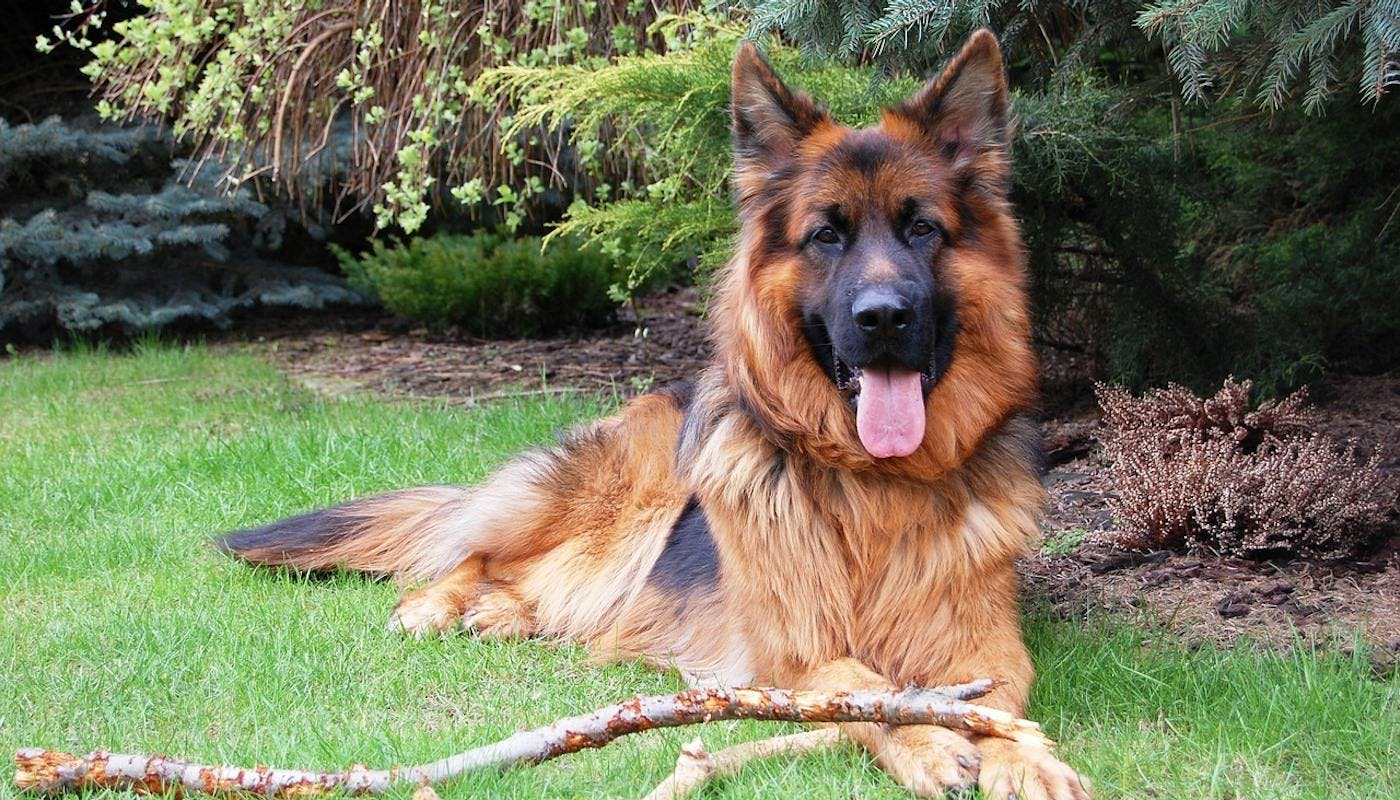Thinking of Getting a German Shepherd? Here’s All You Need to Know…
Tall and dignified, the beautiful German Shepherd makes an excellent family protector. Bonding closely with their people, German Shepherds will suit owners who are prepared to devote time to regular training. Here’s all you need to know before you choose a German Shepherd…
Are German Shepherds Good Family Pets?
With loads of energy, fierce loyalty, and that gorgeous double coat, the German Shepherd has the potential to be an awesome family pet.
There’s a good reason why German Shepherds have been adopted by military and police forces all over the world: these handsome canines aren’t the types to bounce all over every stranger that they meet (…like some spaniels that we know/learn/dog-diaries/this-month-louie-graduated-from-puppy-school.-sure). They’re choosy about their best friends. But once they’ve chosen you, that’s it – you can expect their eternal loyalty and loving affection.
Are German Shepherds Aggressive?
Like most dogs, German Shepherds can become aggressive, especially if they perceive a threat to their owner or families. They are known for their courage and loyalty, which makes them excellent guard dogs. However, if stressed, anxious or nervous, German Shepherds can snap at strangers or other dogs.
It comes down to training. When well-trained, German Shepherds can be kept under control. As a potential owner, you should be prepared to undertake the necessary work with your dog. You’ll be rewarded with a confident, attentive companion.
How Big Do German Shepherds Get?
The average German Shepherd reaches 22-26” in height and 50-90 lb in weight.
How much do they eat? The German Shepherd is a medium-large breed with high levels of activity, so they’ll consume a lot of food – think 3000+ calories per day. Check out the feeding guidelines on your dog food packaging/learn/dog-food/your-guide-to-understanding-dog-food-labels to see how much food you’ll be buying.
Since the breed is disposed to arthritis and hip/elbow dysplasia, adding a supplement like The One/products/the-one can help to keep them moving in their later years.
Are German Shepherds Easy to Train?
German Shepherds were bred in the late 19th century by a cavalry officer, Captain Max von Stephanitz. They looked quite different then. Captain Max’s dogs were rough-coated, with shorter tails than the modern versions. But they already had that special spark, ready to learn and keen to please.
They were bred to be hard-working sheep herders who could handle long days working on the land.
That means that they’re bright, they’re focused, and they have LOTS of energy – so they need extra stimulation in their schedules. Think about whether you could take them for extra walks or training sessions. Your German Shepherd will be keen to follow commands and get lots of verbal praise!
This makes them great candidates for training, but it’s not “easy”… because these intensive training programs call for a lot of time and dedication. Are you prepared to give up the time to take your dog to advanced classes or enrol them in a course or sport/learn/dog-training/does-my-dog-need-a-hobby?
Do German Shepherds Shed a Lot of Fur?
The German Shepherd has a thick and luscious double coat/learn/dog-lifestyle/your-guide-to-dog-coats – just the thing for protecting them against the elements while they herded sheep.
They shed their fur year-round, doing a major shed every six months. That means… if you want to prevent those fur-balls from gathering in corners of your home… you’ll want to get some dog-grooming equipment!
Use an under-coat ‘rake’ (it doesn’t seem to bother dogs) and a regular brush to keep the top-coat sleek. Brush at least three times per week for the best results. You could add a supplement, too: it’s thought that Omega-3 can help to improve the condition of skin and coat, reducing shedding in German Shepherds.
Note – while continuous shedding is quite normal, bare patches or relentless itchiness can be signs of an allergy or skin problem./products/soothe
How Long Do German Shepherds Live?
German Shepherds have a life expectancy of 9 - 13 years.
Further Reading
If you’re still deciding what type of dog will suit your household, check out the best dogs for country living/learn/dog-lifestyle/top-10-dog-breeds-for-country-living, and the best breeds for active families/learn/dog-lifestyle/7-best-dog-breeds-for-active-families. Learn how to stop an active dog from getting too bored/learn/dog-lifestyle/do-dogs-get-bored.
